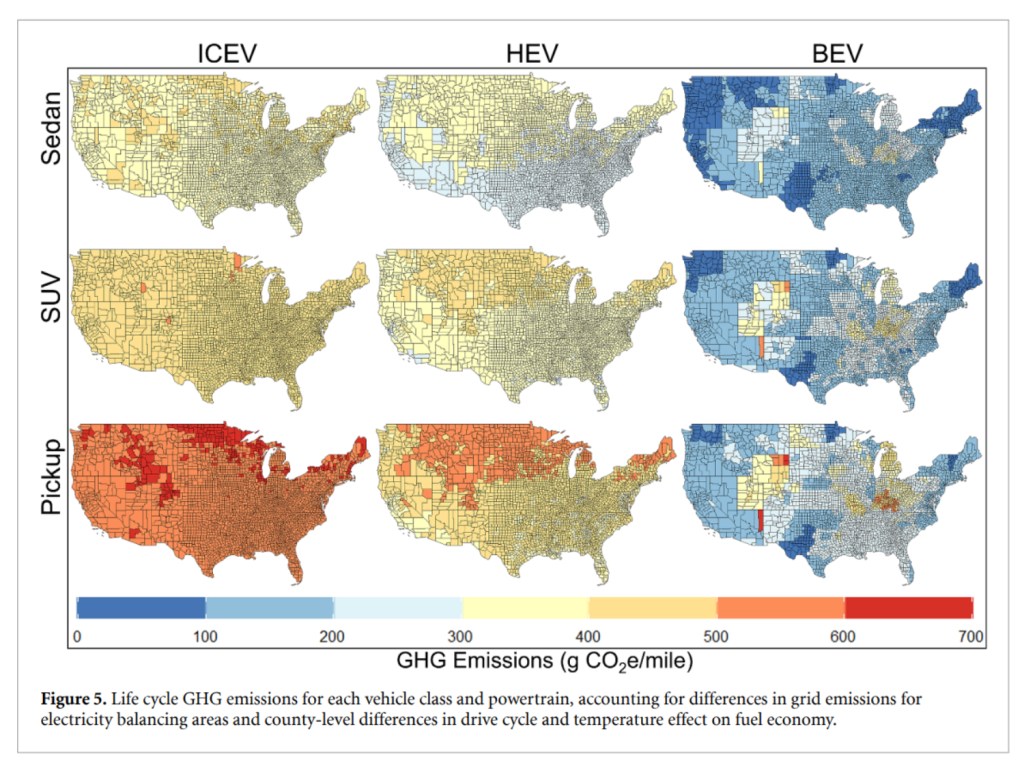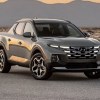
Ford Study Finds Greater Greenhouse Gas Reductions for Pickup Truck Electrification
Ford and the University of Michigan got together to study the benefits of electric vehicles and, more specifically, electric pickup trucks. Evidence supported the idea that the electric version of these cars, trucks, and SUVs had a significant positive impact on the environment. While sedans and electric SUVs positively impact, what did this analysis find about pickup truck electrification?
This study looked at the impact of electric vehicles vs. sedans, SUVs, and pickup trucks

It isn’t a secret that electric vehicles are better for the environment. This recent study with Ford and the University of Michigan looked a bit deeper at the cradle-to-grave life cycle assessment. This is essentially the entire lifespan of a vehicle. That goes from sourcing materials through vehicle repairs, selling the car, or the end of the vehicle’s life.
This study found that “Sedan, SUV, and pickup truck battery-electric vehicles have approximately 64% lower cradle-to-grave life cycle greenhouse gas emissions than internal-combustion-engine vehicles on average across the United States.”
Over the lifetime of the pickup truck specifically, pickup truck electrification reduced 74 metric tons of carbon dioxide equivalent. Cars and SUVs saw a reduction, but the pickup truck had the most significant impact. Ford and the University of Michigan stated that while battery-electric vehicles (BEVs) create more greenhouse gas emissions during production, this is offset by the savings later in the lifecycle.
“The role of pickup truck electrification in the decarbonization of light-duty vehicles”

Sedans, SUVs, and trucks make up about 58% of emissions in the U.S. right now. Pickup trucks, specifically, make up 14% of passenger vehicle sales in the country, but that and SUV sales are growing. But this study asks, what does pickup truck electrification mean for “decarbonization of the transportation industry?”
It shows that these changes to electric vehicles make a significant difference. Since trucks are so popular, the electric pickup truck has a lot of potential. Buyers in this segment need a different kind of vehicle to do the duties of a regular truck.
A 64% reduction in greenhouse gas emissions isn’t a small feat. “This is an important study to inform and encourage climate action. Our research clearly shows substantial greenhouse gas emission reductions that can be achieved from transitioning to electrified powertrains across all vehicle classes,” said Greg Keoleian of The University of Michigan.
The electric truck is here to stay
This research also indicated that as the size of the vehicle increased, so did the emissions reductions. That is due to the amount of fuel needed in large vehicles, such as pickup trucks. That is to say that someone who trades in the Ford F-150 truck for the Ford F-150 Lightning electric truck is making a more significant impact than someone driving a Toyota Camry switching to a Toyota Prius.
The study looked at a 2020 vehicle with a regular gasoline engine, a hybrid powertrain, and a battery-electric vehicle. Further, it looked at midsize sedans, midsize SUVs, and full-size trucks. It found that the breakeven time for cars to start having a positive impact was 1.2 to 1.3 years for sedans. For SUVs, that was 1.4 to 1.6 years. Pickup trucks were 1.3 years.
While it might take a bit of time to get used to the idea of an electric truck, some people are willing to take the risk. With so many options coming out soon, like the Lightning, the electric Chevrolet Silverado, and the GMC Hummer EV truck, the shift might come quicker than you think.



